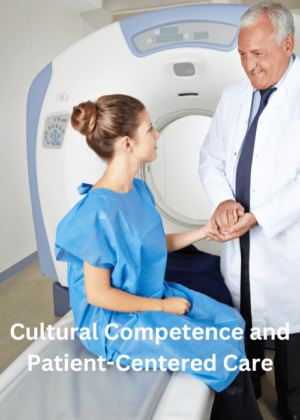Ethical Considerations in End-of-Life Care
Original price was: $300.00.$150.00Current price is: $150.00.
★★★★★ “An essential course for anyone in the healthcare field. It balances the emotional and ethical aspects of end-of-life care perfectly, providing practical frameworks for decision-making.” – Dr. Alex Kim, Geriatrician
Description
Course Overview
“Ethical Considerations in End-of-Life Care” is an essential course designed for healthcare professionals, including doctors, nurses, hospice workers, and counselors. It focuses on navigating the complex ethical dilemmas often encountered in end-of-life care. This course provides a compassionate and comprehensive approach to understanding the sensitive nature of end-of-life decisions, ethical principles, patient autonomy, family dynamics, and legal considerations. Through a blend of interactive lectures, case studies, and group discussions, participants will gain a deeper understanding of how to approach end-of-life care with empathy, professionalism, and ethical integrity.
Learning Objectives
Upon completion of this course, participants will be able to:
- Identify and analyze key ethical principles relevant to end-of-life care.
- Understand the roles of patient autonomy and informed consent in end-of-life decisions.
- Navigate complex family dynamics and communication challenges in end-of-life scenarios.
- Apply ethical decision-making frameworks to real-world cases in end-of-life care.
- Recognize and address legal considerations and patients’ rights in end-of-life situations.
- Develop strategies for coping with the emotional and ethical stressors in end-of-life care provision.
Course Benefits
Participants will gain:
- Enhanced skills in ethical reasoning and decision-making in end-of-life care.
- Improved ability to communicate effectively with patients and their families during sensitive situations.
- Knowledge of legal aspects and patient rights, reducing the risk of legal conflicts.
- Increased confidence in handling complex ethical dilemmas in end-of-life scenarios.
- Tools for managing personal and professional stress related to end-of-life care.
Course Curriculum for “Ethical Considerations in End-of-Life Care”
- Fundamentals of Ethics in End-of-Life Care
- Introduction to the ethical landscape in end-of-life scenarios.
- Principles of Patient Autonomy and Consent
- Deep dive into the concepts of autonomy and informed consent in the context of end-of-life decisions.
- Advanced Communication Techniques
- Strategies for effective and compassionate communication with patients and families in end-of-life situations.
- Frameworks for Ethical Decision-Making
- Examination of various ethical decision-making models and their application in end-of-life care.
- Managing Family Dynamics and Mediation
- Approaches to handle family dynamics, conflicts, and mediation during end-of-life care.
- Legal Aspects and Rights in End-of-Life Decisions
- Overview of legal considerations, including patient rights and practitioner responsibilities.
- Ethics of Pain Management and Palliative Care
- Exploring the balance between effective pain management and ethical considerations in palliative settings.
- Cultural Sensitivity in End-of-Life Care
- Addressing the influence of cultural and religious factors in end-of-life care decisions.
- Psychological Impact on Patients and Families
- Understanding the psychological aspects and support mechanisms for patients and families.
- Navigating DNR Orders: Ethical Considerations
- In-depth look at the ethical implications of Do-Not-Resuscitate orders.
- Implementing Advance Directives and Living Wills
- The importance and execution of advance care planning documents.
- The Ethics of Withholding and Withdrawing Treatment
- Critical examination of the ethical dilemmas in withholding or withdrawing life-sustaining treatments.
- The Role of Hospice in Ethical End-of-Life Care
- Understanding the unique ethical challenges in hospice settings.
- Case Studies in Ethical Dilemmas
- Practical analysis of real-life case studies to apply ethical principles.
- Collaborative Decision-Making in Interdisciplinary Teams
- Emphasizing the role of teamwork in ethical decision-making in end-of-life care.
- Debating Euthanasia and Assisted Dying
- Exploring the ethical controversies surrounding euthanasia and physician-assisted dying.
- Supporting Grief and Bereavement
- Guidance on supporting patients and families through the processes of grief and bereavement.
- Ethical Self-Care for Healthcare Providers
- Addressing the importance of self-care for healthcare providers in dealing with end-of-life situations.
- Trends and Future Ethical Challenges
- Discussion on emerging trends and potential future challenges in end-of-life care ethics.
- Synthesis and Reflective Practice
- Encouraging reflective practice and integrating learnings to enhance ethical decision-making in end-of-life care.
This curriculum is designed to provide a thorough and empathetic understanding of the ethical complexities involved in end-of-life care, equipping healthcare professionals with the skills and knowledge to handle these challenging situations with sensitivity and professionalism.
Testimonials
★★★★★ “A profoundly impactful course. It provided me with the tools and understanding necessary to navigate end-of-life care with sensitivity and ethical clarity. The case studies were particularly enlightening.” – Dr. Julia Mendez, Palliative Care Specialist
★★★★ “This course offered a thorough exploration of ethical considerations in end-of-life care. The module on family dynamics was eye-opening. A bit more on legal frameworks would be beneficial, but overall, a great learning experience.” – Nurse Samuel Peterson, Hospice Nurse
★★★★★ “An essential course for anyone in the healthcare field. It balances the emotional and ethical aspects of end-of-life care perfectly, providing practical frameworks for decision-making.” – Dr. Alex Kim, Geriatrician





